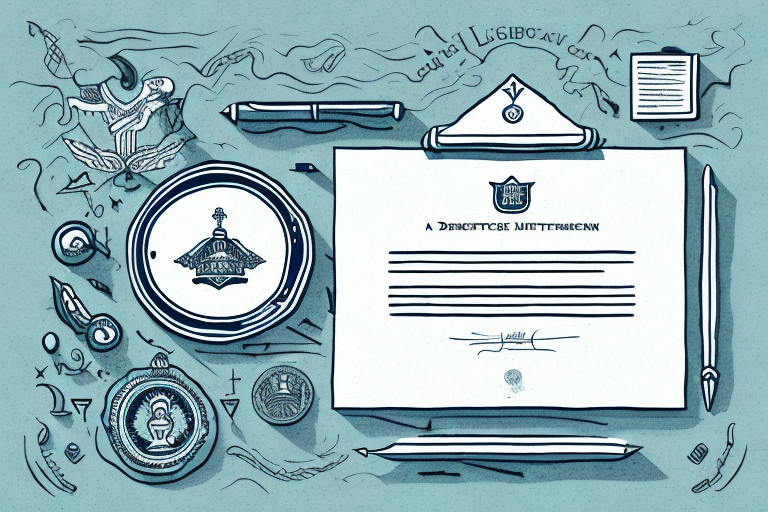A few months ago, I sat with my best friend as she sorted through her father’s belongings after his sudden passing. Amid the grief, the calls, the paperwork, and the silence, she stumbled across an envelope labeled simply: “My Will – for the girls.”
Inside wasn’t just legal language. It was direction, clarity, and, most importantly, comfort. Her father had thought through everything — from the family home to who would take care of their old dog, Benny. He had even written a small personal note for each daughter.
That moment didn’t erase their grief, of course. But it gave them peace. Peace that they didn’t have to make difficult decisions. Peace that they were following his wishes. Peace that, in his final days, he had made a plan to care for them.
That’s the true value of a will. It’s not just about property or paperwork — it’s about leaving peace behind.
A Will Is an Emotional Safety Net
We tend to view wills through a purely legal lens: something cold, formal, perhaps even intimidating. But that’s only one side of the story.
At its core, a will is an act of emotional responsibility. It says: “I care enough about you to prepare for when I’m gone.”
It helps prevent arguments. It answers questions. It removes burdens. And it gives your loved ones something priceless: direction during a time when everything else feels uncertain.
Whether you’re 35 or 75, whether you own a mansion or a modest apartment, writing a will isn’t about your wealth — it’s about your wishes. It’s your voice. Your plan. Your final promise.
“I’m Too Young” and Other Common Misconceptions
Let’s clear the air on something — wills are not just for the elderly or the super wealthy. That’s one of the most damaging myths out there.
See more: Understanding the Importance of Online Wills for Modern Families
Here are a few common misconceptions — and the truth behind them:
- “I’m too young to need a will.”
Tragedy doesn’t follow a schedule. If you’re over 18 and have anything or anyone you care about — a partner, a pet, savings, digital assets — a will matters. - “I don’t own enough to bother.”
A will isn’t just about wealth. It’s about making your wishes known. Even if it’s about who gets your vinyl collection or your grandmother’s necklace, that clarity matters. - “Everything will go to my spouse anyway.”
Not always. State laws vary, and in some places, dying without a will (intestate) could split your estate in unexpected ways — leaving your spouse, children, or other loved ones vulnerable to legal complications.
The truth? If you have people you love or belongings that matter to you, a will is essential. And it doesn’t have to be complex or costly to start.
When There’s No Will, Grief Becomes Chaos
I once met a man — let’s call him Daniel — who lost his father suddenly. They were close. But his father died without a will.
What followed was heartbreaking. Arguments with siblings over who should handle what. Delays in accessing bank accounts. Court proceedings that dragged on for months.
On top of grief, Daniel found himself stuck in stress and uncertainty — all of which could’ve been avoided with a single document.
When someone dies without a will, their estate goes through a court process called probate. The state decides how everything is divided. And while the law may try to be fair, it doesn’t know your relationships, your values, or your family dynamics.
Without a will, there’s no protection. No guidance. Just guesswork and red tape — right when your loved ones need peace the most.
A Will Is a Gift You Give Your Family
Here’s the thing: grief is already overwhelming.
In the days after losing someone, emotions are raw. Minds are foggy. Decisions feel impossible. The last thing anyone wants to do is sort through legal logistics and family disputes.
That’s why a will is one of the kindest, most thoughtful things you can leave behind.
It protects your family from confusion. It prevents conflict. It offers a roadmap — clear and calm — when everything else feels like a storm.
A good will can:
- Name a trusted guardian for your children
- Ensure your partner or spouse is provided for
- Distribute your belongings as you intended
- Express your wishes for medical or funeral decisions
- Appoint someone to manage your digital or online life
- Include messages, stories, or personal reflections
It’s your chance to guide your family even after you’re gone. And in doing so, bring them peace when they need it most.
The Will as a Final Act of Love
Think about all the ways you show love: a phone call, a home-cooked meal, a thoughtful gift, a shared laugh.
Creating a will belongs on that same list.
It’s not about doom and gloom — it’s about devotion. It’s saying, “I love you enough to think ahead. To protect you. To spare you from worry.”
It’s an act of love. A final gesture of care. A responsibility taken with heart.
And let’s not forget — a will isn’t just for your loved ones. It’s for you too. It brings peace of mind, knowing you’ve done your part. That you’ve put your affairs in order. That you’ve spoken your final wishes with clarity and compassion.

Start Small, Start Today
You don’t need to have it all figured out. You just need to start.
A basic will includes:
- Your full name and information
- An executor (someone you trust to carry out your wishes)
- Who gets what — from finances to personal items
- Guardianship wishes if you have children
- Your signature and witness signatures
There are affordable online platforms and will kits to help guide you. If your situation is more complex, a lawyer can offer tailored advice.
The most important part? Don’t wait. Even a simple will is better than none at all.
You’re Not Just Leaving Things — You’re Leaving Peace
A will may deal with possessions, but its real power is emotional.
It’s a calming voice in a chaotic moment. A sense of order amid loss. A final message that says, “I thought of everything — and of you.”
And when your loved ones open that envelope and see your handwriting, your plans, your love — they’ll feel it. Not just your absence, but your presence too. That’s what peace looks like.
A Gentle Goodbye, Written With Love
We all want to be remembered with love. To leave behind something good. To part in a way that reflects how we lived — thoughtfully, generously, intentionally.
Writing a will allows that.
It doesn’t have to be poetic or perfect. It just has to be yours. Your thoughts. Your wishes. Your final gesture.
So if you’ve been putting it off, let this be your gentle nudge. Not because you need to prepare for the worst, but because you want to leave the best behind — peace, clarity, and love.
Because in the end, a will is not about death — it’s about care. It’s a way of saying, “Even when I’m not here, I’m still looking after you.”
And there’s nothing more beautiful than that.














